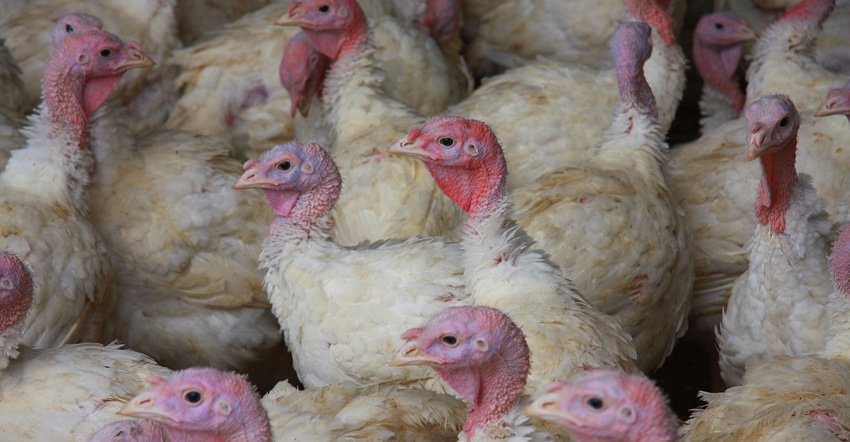
Confirmation of H5N1 highly pathogenic avian influenza in Minnesota flocks in late March did not surprise state animal health officials and poultry farmers. They knew it was a matter of time when domestic birds would show signs of the disease, after HPAI was found in migrating waterfowl earlier this year.
The Minnesota Board of Animal Health says more than 376,000 birds are housed in facilities where positive cases have been confirmed.
As of March 30, five flocks have been confirmed positive by USDA’s National Veterinary Services Laboratory in Ames, Iowa. Infections were confirmed in a Meeker County commercial turkey flock (289,000 14-week-old toms); a Mower County backyard mixed flock of chickens, ducks and geese (17 birds); a Stearns County commercial turkey flock (24,000 multiage toms); a Kandiyohi commercial turkey flock (40,000 birds); and a Lac Qui Parle commercial flock (23,000).
Dale Lauer, MBAH poultry program director and director of the Minnesota Poultry Testing Laboratory in Willmar, says this is the first time since 2015 that HPAI has been detected in the state. Minnesota’s poultry industry was at the heart of the unprecedented outbreak that year, with 110 farms being affected. Nationwide, the disease resulted in economic losses of $950 million.
MBAH established a 10-kilometer control area around HPAI-infected flocks. Positive flocks have been quarantined and will go through depopulation.
A USDA emergency response team planned to arrive in Minnesota March 30, and would remain at least three weeks to support the state’s Agricultural Incident Management Team based in Kandiyohi County. The team will work alongside MBAH officials and producers to respond to the incident, including quarantining the infected flocks, supporting infected-site response activities, engaging in disease surveillance, and coordinating state and federal logistics and finances.
Keep close eye on flocks
Meanwhile, MBAH officials say it’s important that flock owners continue to keep a close eye on their birds.
“Poultry producers and backyard flock owners need to be on alert and contact their veterinarian immediately if they see any changes in their flocks,” Lauer says. “Everyone in poultry facilities needs to follow the site’s biosecurity protocols, every time, to prevent the spread of disease.”
Flock owners who see any clinical signs of influenza, such as a drop in water consumption or increased mortality, or who believe their flock might have been exposed to birds with the disease, are asked to immediately call their veterinarian. Veterinarians are asked to call the Minnesota Poultry Testing Laboratory at 320-231-5170 (after hours and weekends, call the Minnesota duty officer at 800-422-0798).
Testing for HPAI is available at both MPTL and the Veterinary Diagnostic Laboratory in St. Paul.
Officials also are reminding the public that poultry is safe to eat. Proper handling and cooking of poultry and eggs to an internal temperature of 165 degrees F is advised.
The Centers for Disease Control and Prevention also recently announced this strain of avian influenza is a low risk to the public. No human cases of these avian influenza viruses have been detected in the United States.
More information on the confirmed cases, including information and resources for farmers and flock owners, is available on the Board of Animal Health’s response website.
Officials recommend that flock owners review their biosecurity measures to maintain the health of their birds. Visit online bah.state.mn.us/biosecurity.
About the Author(s)
You May Also Like






